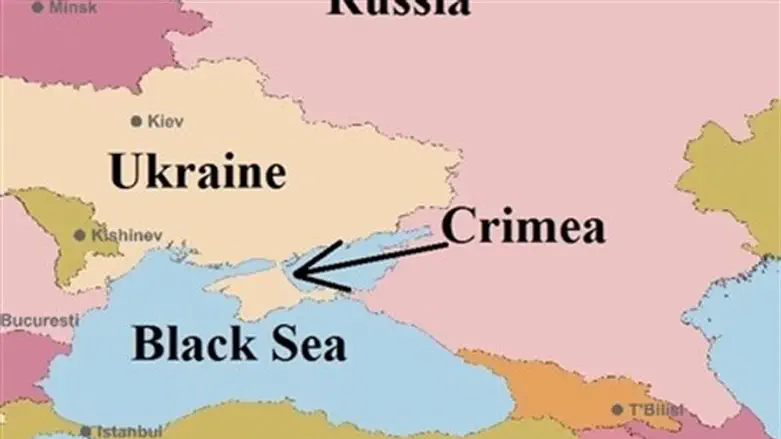
While there are many notorious Jewish villains of modern Jewish history including the likes of Shabtai Tzvi, Karl Marx and the Kapos, perhaps no Jew in modern history was as vilified as Rabbi Meir Kahane. He spoke powerfully about what he believed to be true and made a mockery of the establishment decades before Donald Trump made that his trademark. He somehow managed to be both a strict traditionalist and an iconoclast at the same time.
No person or community was immune from his biting commentary on their shortcomings and hypocrisies including right wing secular nationalists, the modern orthodox and the haredim. No Jewish leader that comes to mind had the ability to get under the skin of so many of the establishment Jewish leadership figures across the spectrum.
He was a man with many enemies and few allies because he was outspoken, had unconventional views and could not care less as to how he was perceived by the world. He was also the most misunderstood political thinker in modern times specifically in that he was believed to be a violent racist who hated Arabs. Nothing could be further from the truth.
Kahane’s ideology was based on the belief that Israel, in its entirety, belonged to the Jews as per the Torah. This belief was not based on race theory or nationalism, but on simple religious belief. Eretz Yisrael is the land promised by G-d to the Jewish people. He also completely understood and sympathized with the fact that Palestinian Arabs believed that Israel, in its entirety, belonged to them. He saw this conflict as being irreconcilable due to the fact that it was not simply a real estate or monetary dispute where both sides could just meet somewhere down the middle.
For the Torah Jew or the devout Muslim to compromise on even an inch of land, would be to forsake the most intrinsic aspects of their identity including their religion and their national pride. In this regard, Jews and Arabs were equal. Asking either one of them to compromise on a land that they love and feel is exclusively theirs is like asking a parent to compromise and give away a child for the sake of peace with a neighbor. Kahane realized that it takes maturity to acknowledge that not every problem has a solution, and not every sacrifice is worthwhile.
Understanding the deep and intrinsic connection that both Palestinian and Israeli Arabs have with the land, he felt that Israel would not be able to maintain its sovereignty as a Jewish state in the long term, with a large and hostile minority population that is ideologically aligned with its enemies. No one wants to be a minority in a country that they feel has been robbed from them, regardless of how generous or prosperous the new owners are. Most significantly, in a time of crisis, a hostile minority will inevitably join forces with the enemy if they feel that they have a realistic chance of taking “their country” back. This is simple common sense. Even Pharaoh feared that. It is uncomfortable and disconcerting to think about and consider, but it is impossible to ignore
Crimea is a perfect example of why this concern that Kahane had was real and justified. Crimea was a Ukrainian peninsula with a very large and significant ethnic Russian population. In 2014, after a war broke out between Russia and Ukraine, Putin annexed Crimea with both the acquiescence and active support of the local ethnic Russian population. The local ethnic Russians were happy to be under Russian sovereignty once the opportunity arose. While most of the western powers condemned the Russian annexation of Crimea and still refuse to recognize it, no one was determined enough to do anything to stop it.
Based on this scenario, would it be far-fetched to surmise that one day, during a crisis with Lebanon or Syria, the Israeli Arab population would lend its hand to support Israel’s enemies if it felt that it had a real chance of reestablishing Arab rule over all or part of “Palestine”? If the Ukrainians had known then what they know now about the future Crimean annexation and the support it received from the local ethnic Russian population, could they be considered racist for trying to enact policies to prevent it? Any fair observer would call it self-preservation, not racism. A government’s foremost obligation is to protect its people and its sovereignty. That was the primary factor driving Kahane’s policy outlook.
Kahane’s attitude towards Arabs was not based on visceral hatred and racism, but based on his desire to ensure Israel’s long term survival. He understood that the Arab connection to the land ran so deep, and their hurt at Israel’s perceived “theft” was so strong, that it would be impossible to reconcile with them short of a full surrender. Israel could either give them what they felt was theirs- everything, or had to be prepared to take everything for themselves.
After 2,000 years of exile, Kahane did not see surrender as an option. He differed in this regard from many of his Jewish ideological opponents in that for many, surrender would be preferable to relinquishing on issues of Democracy. He also truly felt that Israel was not in anyone’s authority to give up.
Kahane understood that Arabs loved the land no less than he did and would never willingly relinquish their claims over it. For stating the painful and the obvious, that which most understand but are afraid to express openly and do not intend to act on, he continues to be vilified by the entire Jewish establishment until today, more than thirty years after his murder.
Richard Levy is a freelance writer who made aliya several years ago.